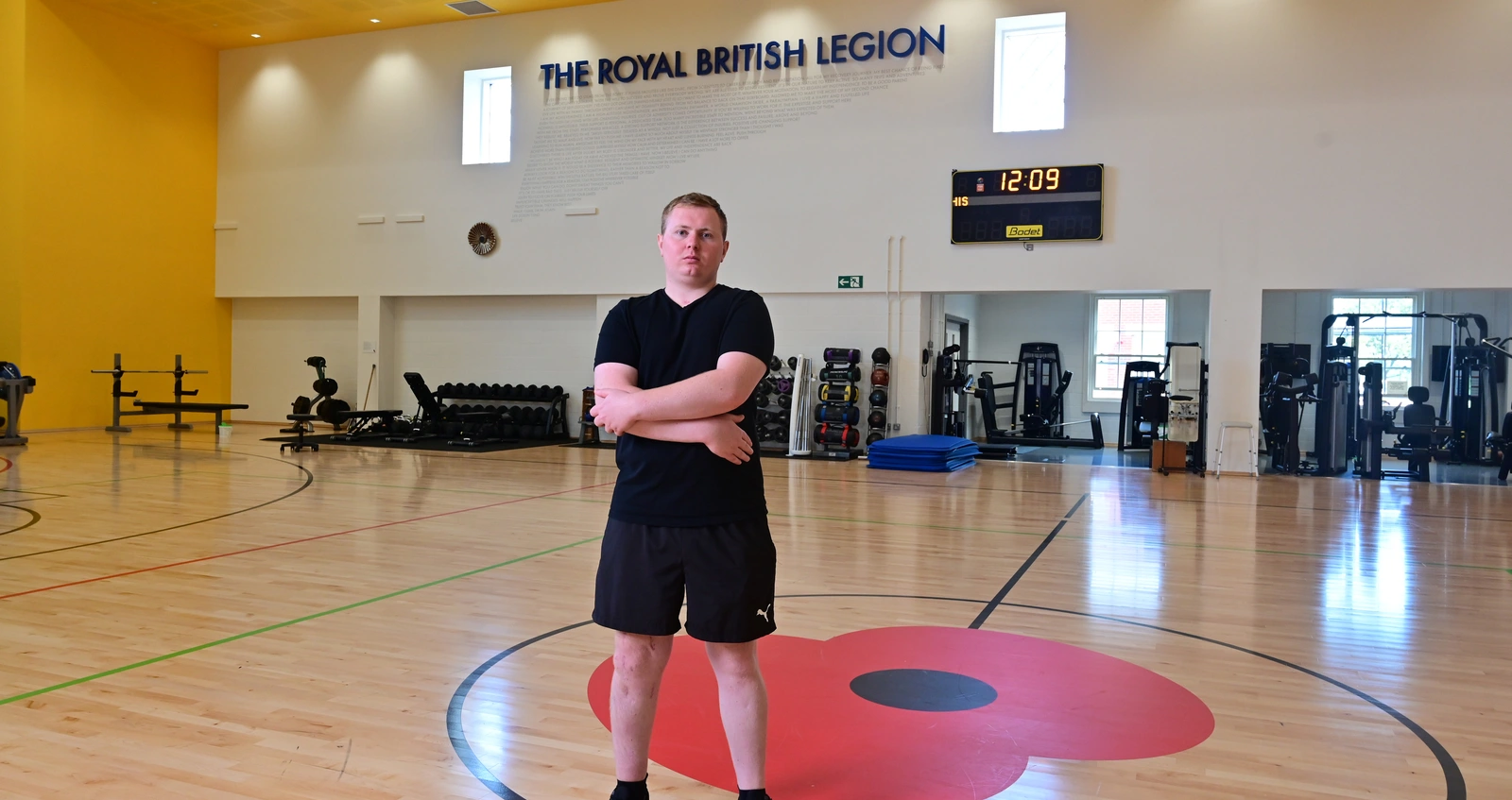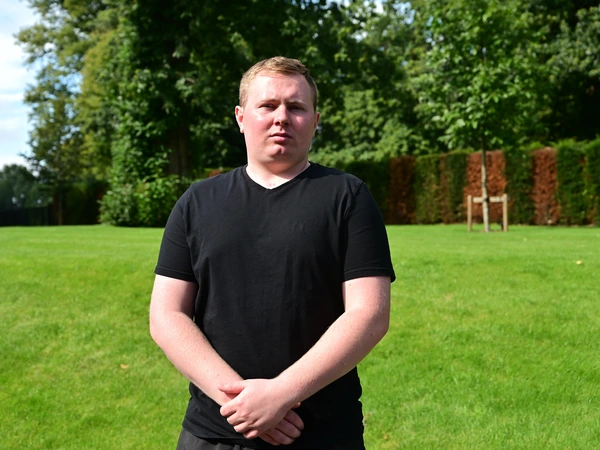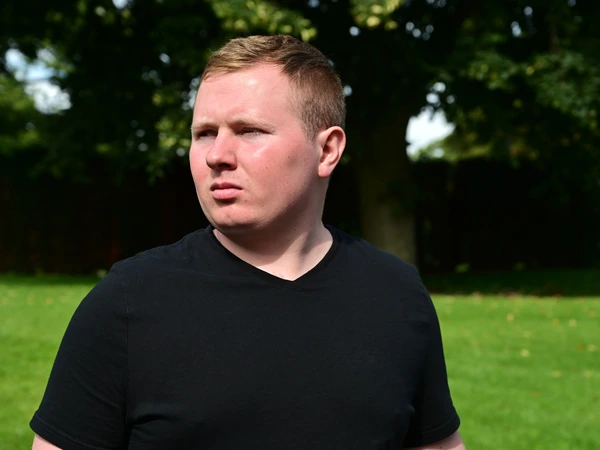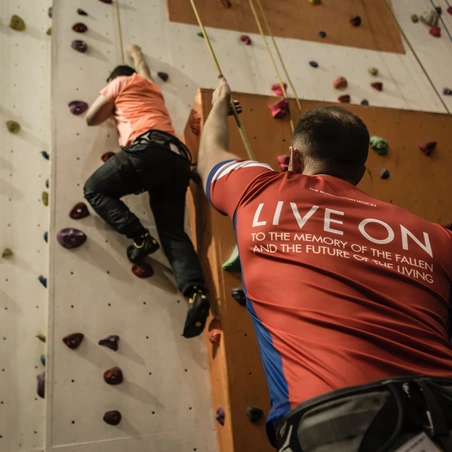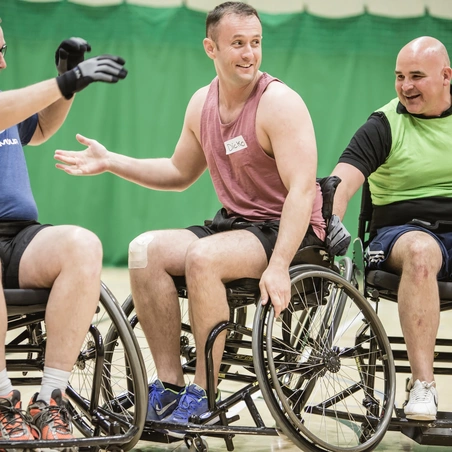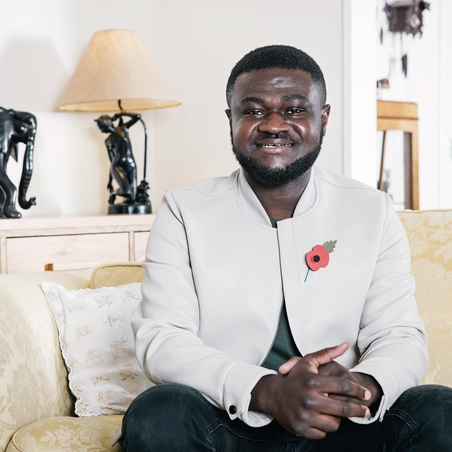Lance Corporal Adam Nesbitt was inspired to join the Army by his time in the cadets and signed up after leaving school at 16.
Joining the Royal Logistic Corps as a chef, he was deployed to Cyprus, Germany and Afghanistan on Operation HERRICK 17.
Unfortunately, when back in the UK Adam was seriously injured in a motorbike accident.
“I had finished work and was on my way home when I was involved in an unfortunate traffic accident,” Adam says.
He suffered severe injuries all over his body, breaking his spine, ribs, legs, arms and fracturing his skull, which has left him with brain damage.
He spent four months in hospital before embarking on years of intense rehabilitation at Headley Court before being transferred to its successor, the DMRC Stanford Hall.
Rebuilding his life
"When I left the hospital, I didn't know who I was, I didn't know my name, I didn't know my mother,” Adam says.
"I remembered small details but the hardest part I think was remembering who I was, my name, where I'm from. And trying to remember my old friends. I remember two or three of them, but I don't remember them all."
It’s been almost three years since Adam’s accident, and he is still trying to adapt and build a new life for himself.
"It has been a slow process because certain things hold me back. I'm unable to do certain types of physio because of the injuries to my right leg. And then the brain damage side, the neurological side, that has held me back quite a bit because I struggle to understand a lot of things,” Adam says.
"You can't repair the brain, it's going to be like this for my lifetime, so I'm having to try to learn new ways to do things."
The start of a new chapter
"I'm physically able to do lots more now than I thought I could ever do, even doctors in the hospital didn't think I'd get to a certain level. But I’ve overtaken that and gone a lot higher than what anybody thought I ever could.
"The DMRC have got me to that level, not just the physical ability but mental ability as well. They've helped me understand things a lot more, and I now know the best way to remember things.
"I wouldn't say it's helped one or two little things, it's helped my entire life, I know who my family are now.
"People like me who get a medical discharge, we get the best care and treatment [at DMRC] that you'll get around the world in my eyes.
"And those with physical injuries, they get the care and the correct rehabilitation they need to get back on their feet to get back to their duty and work and stay in the Armed Forces.
"The DMRC just gets you to the perfect level to be able to go back into work. And they also do tests, like the standard military tests, fitness wise and cognitive wise before they let you leave to make sure you're at that correct level."
Adam is now preparing to leave the Army and transition to civvy street and hopes to carry on his career as a chef.
"I'll have to come back in a few more times for physical rehab before I get medically discharged from the Armed Forces, and then I'll try and build a new life.


